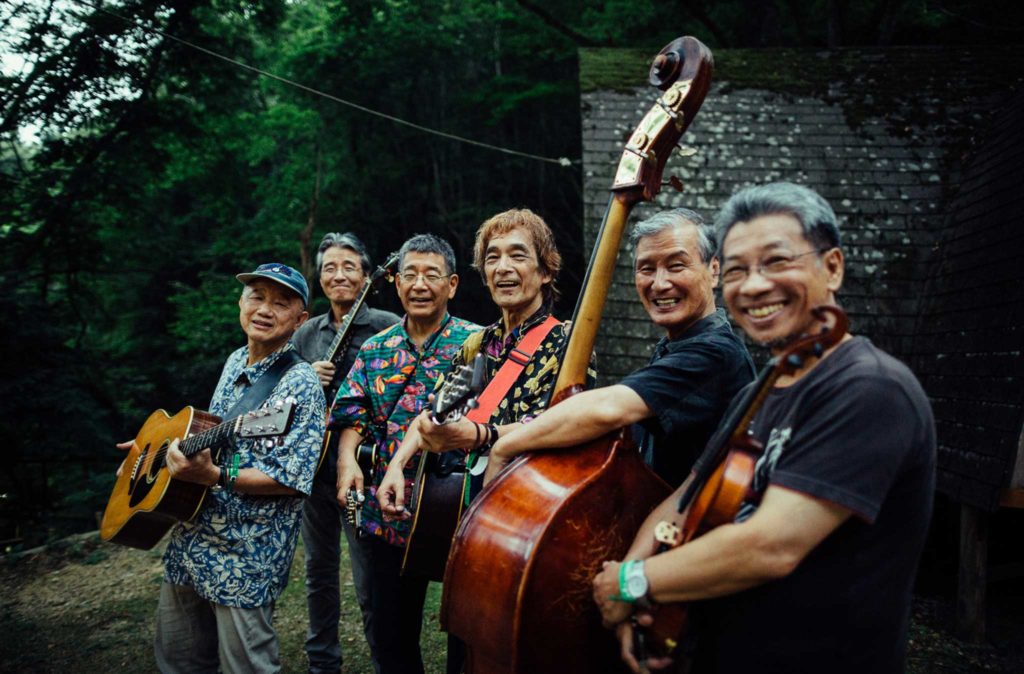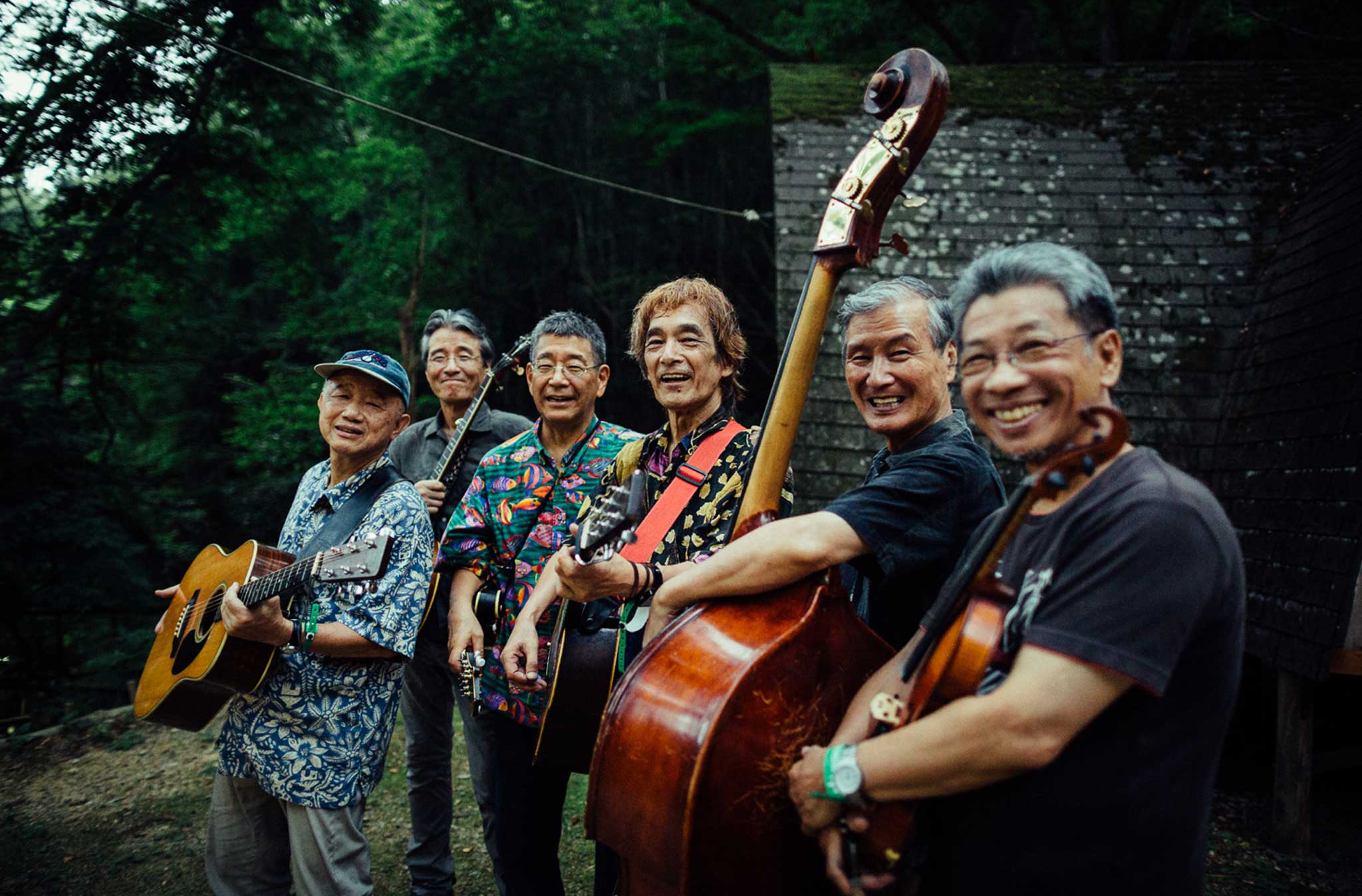
The Birthplace of Country Music is proud to present the international musicianship of Bluegrass 45 at the Birthplace of Country Music Museum on Monday, October 2, 2017 at 7:00 p.m. More than a band, these six friends from Kobe, Japan have shared 50 years of friendship, musicianship, and a passion for music that has promoted and championed bluegrass as a culture, genre, and lifestyle all over the world. This is a rare opportunity to see the group in an intimate concert performance.
“Hosting Bluegrass 45 in Bristol at the Birthplace of Country Music Museum is a historic occasion,” said Leah Ross, Executive Director of the Birthplace of Country Music, the parent organization of the museum, the Bristol Rhythm & Roots Reunion music festival, and Radio Bristol. “The band will be shooting a documentary film while they are here. They also plan to pay a visit to East Tennessee State University’s Department of Old Time and Country Music Studies. It’s important to note that the music of our region continues to influence artists around the world. In Japan there is a lot of interest in our culture and in traditional bluegrass. We often see visitors from Japan in the museum due to that influence.”
During the late 1800s, music of other countries was celebrated in Japan. Folk songs and dances from around the world were taught to school children and an interest in arts around the globe flourished. But this was before World Wars I and II. This was before the bombing of Pearl Harbor and the bombing of Hiroshima and Nagasaki. This was before the second Sino Japanese War and the Nanking Massacre. The bomb blasts and violence of war resulted in a great cultural silence.
The members of Bluegrass 45 were born into this silence.
Their world was cut off from the imports available to musicians in other countries. Until adopting a more liberal constitution in 1948, American music was illegal in Japan. Despite this fact, Josh and Akira Otsuka grew up in a home with a few American LPs. Like the lyrics from “Red River Valley,” one of the first American songs the brothers heard, the war’s prohibition of many imports, including records from other countries, took “away all the sunshine” that had brightened the musical lives of many pre-war Japanese.
Two main factors changed Japanese music in the 1950s: the influx of American G.I.s into the port city of Kobe and the Armed Forces Radio Network. Soldiers from all over the U.S., some who played traditional music, occupied Japan all the way through the 1950s and 1960s. Access to American pop music opened up a window into popular culture that had previously been closed.
The members of Bluegrass 45 took the music they could now access and became devoted students. This devotion led them to the United States. Their first experiences were with bluegrass festivals and that eventually led to sharing the stage with bluegrass and country names from Loretta Lynn, Bill Monroe, and Dr. Ralph Stanley, to Roy Orbison, Merle Haggard, and Roger Miller.
Upon their return to Japan, the members of the band were committed to spreading the message of bluegrass to their own country. Collectively, they are responsible for starting a bluegrass record label, print publication, festival, multiple college bluegrass clubs, and a business employing many musicians and enabling them to tour. The band has not only been playing bluegrass for nearly half a century, but its members are largely responsible for the primary documentation and development of Japanese bluegrass as a whole. A modern embodiment of the much valued sense of Japanese responsibility, each member of Bluegrass 45 has made it his life’s work to pass on a love for bluegrass to future generations of Japanese people in the same way bluegrass songs are passed down through generations of American musicians.
Tickets to see Bluegrass 45 at the Birthplace of Country Music Museum are $20 per person. Doors to the show will open at 6:30 p.m.


